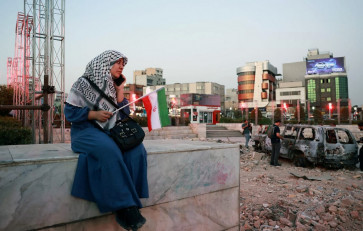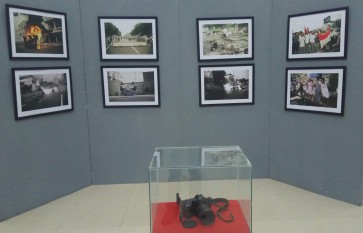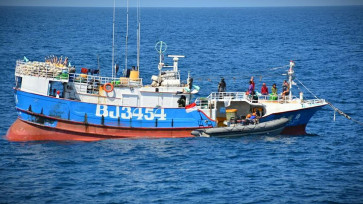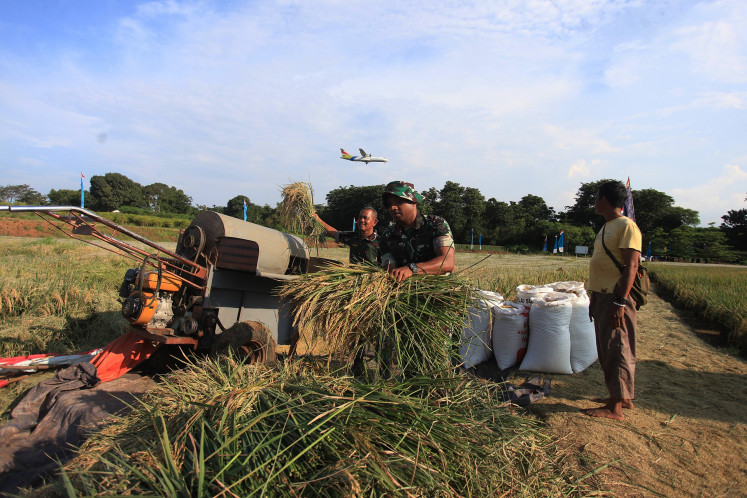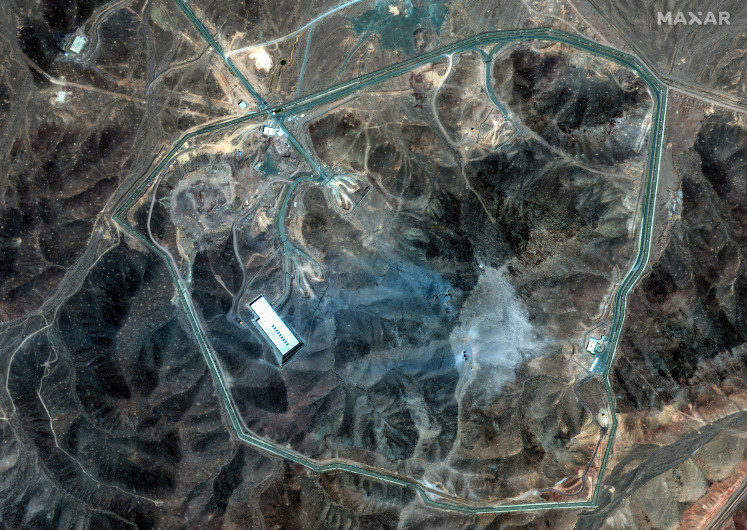Popular Reads
Top Results
Can't find what you're looking for?
View all search resultsPopular Reads
Top Results
Can't find what you're looking for?
View all search resultsAlternative sources of funding for relocation of nation’s capital
Change text size
Gift Premium Articles
to Anyone
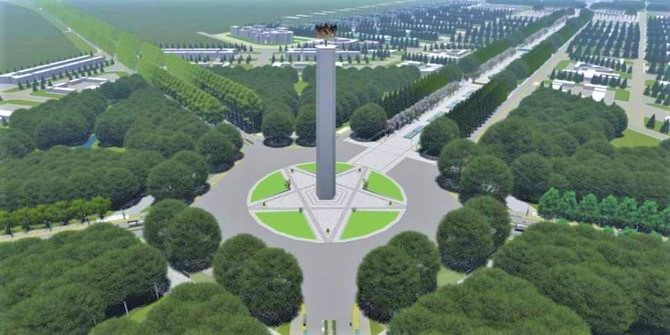
T
he relocation of the nation’s capital to East Kalimantan will require a huge sum, some Rp 466.5 trillion (US$31.31 billion). Funds from the state budget are estimated at only Rp. 91.3 trillion, or 19.6 percent of total financing needs.
Sources of funding from the state budget were relatively limited to keep the fiscal deficit manageable. Thus, funds from public-private partnerships (PPPs) and the private sector have an important role in building the new capital Nusantara.
Nevertheless, we see that funds from the private sector are also relatively limited until 2024. We think that investors are going to wait to invest due to the general election in 2024. Similarly, foreign funds from other countries will also be relatively restrained in line with global economic uncertainty and a potential global economic recession. Therefore, government support, fiscal incentives and financing breakthroughs will play an important role in attracting investors to the new capital project.
In April 2022, the government issued Government Regulation (PP) No.17/2022 on funding sources for the new capital city. The regulation deals with funding and budget management in the context of the preparation, development and relocation of the nation’s capital as well as its local administration. There are six funding schemes under the regulation.
The first is the state budget. These funds can be allocated for basic infrastructure development, such as the new presidential palace, ministry offices, the water supply, roads and sewage and drainage systems in the core government area.
As a first step, the government has budgeted Rp 5.4 trillion in the 2022 state budget for the city’s development. In 2023, the budget for the new capital’s development is set to rise to Rp. 20.6 trillion, according to the 2023 state budget plan. These funds are earmarked for basic infrastructure development.
Previously, the Public Works and Housing Ministry estimated that financing needed for basic infrastructure development in core area of the new capital from 2022 to 2024 would be Rp 43.73 trillion. Therefore, the state budget allocation for the city in 2024 is estimated to reach Rp 17.5 trillion.
The second funding scheme is the use of state-owned property (BMN) and assets under control (ADP). The use of BMN can be in the form of rent, build-use-handover or build-handover-use, and utilization cooperation. Government building and offices in Jakarta could be utilized or optimized to obtain IKN development funds.
We view that there are some challenges in using BMN, such as the fact that government office buildings tend to be old, so they need to be renovated to follow current trends and that the process of utilizing BMN must go through a tender and an asset revaluation process.
The third scheme is the use of PPPs. PPPs involve collaboration between the government and business entities to provide infrastructure and facilities bound by an agreement. Funding from PPPs can be allocated to develop housing for civil servants, basic infrastructure and utilities outside of the state budget allocation, increasing connectivity and education and health facilities.
The PPP agreement is divided into various forms depending on the contract and risk sharing. PPPs for the new capital can be carried out in three forms according to the return on investment, including a tariff PPP (user payment), availability payment and others based in law.
In implementing PPPs, we see that incentives and support from the government are needed to attract investors to invest in the new capital project, such as legal certainty, PPP preparation and transaction facilities, project feasibility support, tax incentives and government guarantees. For instance, PPPs have been carried out on several infrastructure projects, such as the Umbulan drinking water supply project in East Java and the Palapa Ring Project.
The fourth financing scheme is investment cooperation between business entities. This includes the assignment of state-owned enterprises to capital city projects, cooperation between SOEs and private companies, and pure private sector activity. Funding from investment cooperation schemes can be allocated for private education and health facilities, shopping malls and housing for non-civil servants.
Just like PPPs, this scheme requires support, incentives and guarantees from the government. Government support can be in form of providing state capital injections (PMN), government guarantees and tax incentives to attract investors to the project.
The fifth source of funding is from other countries or international institutions. Financial support from other countries can be in the form of grants and loans, both bilateral and multilateral. The government can attract international funding for the capital city project by highlighting green financing, considering green and smart city concepts in the capital city’s development. Green financing has become a trend in global financing lately.
The last source of funding is creative financing. This includes municipal bonds, green bonds, Sustainable Development Goal (SDG) bonds and collective investment contracts, as well as crowdfunding. Crowdfunding, including philanthropic funds and corporate social responsibility funds, are a type of financing in the form of a joint venture. Crowdfunding schemes are voluntary and without coercion.
However, we think that crowdfunding has the potential to create a negative perception in society. For instance, people could think that the government is not ready to develop the new capital, even though the relocation initiative came from government.
Therefore, we see that crowdfunding schemes should be accompanied by clear, transparent and on target use of funds. Funds from crowdfunding can be allocated for religious facilities. The government needs to convince the public that relocation of the nation’s capital is a development from, by, and for the people and a better Indonesia.
Overall, we see that the development of the new capital needs huge funding while funding from the state budget is limited. Therefore, breakthroughs are needed to attract both domestic and international investors to participate in the city’s development. We hope that using the state budget in the initial stage of the city’s development will serve as a catalyst to enhance investor confidence in the project.
*****
The writer is senior regional analyst at Bank Mandiri

